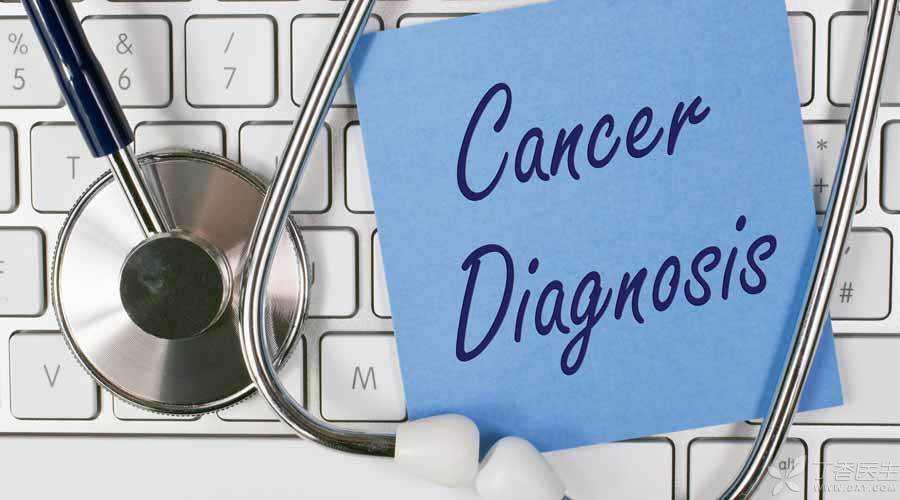
There is a saying in the circle of friends:
Everyone has cancer cells, and everyone can get cancer.
If you want to persuade people to cherish their health out of good intentions, it is understandable to say that [everyone may get cancer].
However, some people added “everyone has cancer cells” in order to promote the so-called “anti-cancer products”.
Of course, Dr. Clove couldn’t bear this kind of thing and immediately refuted the rumor.
Everyone has cancer cells? The truth is…

There may be [problematic] abnormal cells in everyone’s body.
Whether it is out of kindness to persuade people to cherish their health or because they pretend to sell [anti-cancer products], the statement that [everyone has cancer cells] is too scary.
The correct statement is:
Every human body has more or less some cells that may undergo gene mutations, and these abnormal cells have the potential to become cancer cells.
Therefore, we can say that [everyone may have cancer], but [everyone has cancer] is wrong.
Abnormal cells are not equal to cancer cells.

There are two reasons.
1. The human body has a defense mechanism that can cause abnormal cells to die.
Under normal circumstances, the human body will check the cells for abnormal mutations and then try to repair these mutations.
If it is really impossible to repair the mutated gene, it will activate a powerful tumor suppressor gene p53, start the [self-destruction program] of cells, and kill those mutated cells that cannot be repaired through various ways.
2. The occurrence of cancer is a long-term and complicated process.
The occurrence of cancer takes decades and multiple stages to complete, and does not become cancer cells due to gene mutation.
Many cancers go through a [benign tumor] stage before occurrence, such as tubular adenoma before occurrence of colon cancer and cervical intraepithelial neoplasia before occurrence of cervical cancer.
Through regular cancer screening, the discovery and treatment of benign tumors can well prevent canceration.
Without annoying mutated cells, there is a chance to prevent cancer.
It is not easy to produce cancer cells and cause cancer. It may require multiple gene mutations.
But as long as one of the genes is affected by environmental factors, then the cancer is worth preventing.
Specifically, avoiding carcinogens and doing less or no things that [irritate] cancer cells is a good prevention.
8 Suggestions for Cancer Prevention

Doing the following 8 things well can really reduce the incidence of some cancers:
1. Avoid smoking and stay away from [secondhand smoke] [third-hand smoke]
Data from the World Health Organization show that tobacco use causes about 22% of cancer-related deaths worldwide.
If you want to fight cancer, there is nothing to say. Quit smoking first.
2. Don’t drink, drink less
Liver cancer, oral cancer, esophageal cancer… Many cancers are related to alcohol abuse.
Therefore, no matter how deep your feelings are, you should drink a little and never take a few big gulps.
3. Insist on exercising and control your weight.
Statistics show a cruel reality: fat people are more likely to get cancer.
Dr. Clove has introduced many times the parameter to judge whether the weight is normal: height and body mass index (BMI), and will tell you about it again today.
BMI = weight (kg)/height (m) squared
- BMI: < 18.5 underweight BMI: 18.5 ~ 23.9 normal weight BMI: 24 ~ 27.9 overweight BMI: ≥ 28 obesity
Let’s take a look at it. If you are overweight, exercise quickly.
Step 4 Keep your mouth shut
A cancer word has three mouths, which shows that it is necessary to shut up.
Low-salt diet, eat more whole grains, beans, vegetables and fruits, eat less high-calorie foods (high-sugar and high-fat foods), and eat less or no processed meat (such as pickled meat, sausage, canned meat, etc.).
5. Take good sun protection measures
It is not a bad thing to bask in the sun, but it is not good to bask in too much sun, because ultraviolet rays in the sun are the exact factor causing skin cancer.
Using sunscreen, sunglasses, wearing wide-brimmed hats and thin long-sleeved clothes can contribute to the prevention of skin cancer.
6. Breastfeeding
Studies have pointed out that breast feeding can reduce the incidence of breast cancer by 10% and has preventive effects on some of the most malignant breast cancers.
7. Vaccination to prevent carcinogenic infection
Vaccination with hepatitis B vaccine can prevent primary liver cancer, and vaccination with human papillomavirus (HPV) vaccine can prevent cervical cancer.
8. Regular physical examination and reasonable cancer screening
The examination here is not only for oneself, but also for everyone to care about the physical condition of their families, to know their cancer risks from doctors, and to formulate a reasonable cancer prevention examination plan.
